detail profile malu mader

Riwayat Hidup
Maria de Lourdes da Silveira Mäder (Rio de Janeiro, September 12, 1966), better known as Malu Mader, is a Brazilian actress.
Having starred in several soap operas, she became one of the most popular actresses in the country.
Info Pribadi
Peran Yang Di Mainkan Malu Mader
 In the sequel to Turma da...
In the sequel to Turma da...Monica and Friends: Lessons 2021
In the sequel to Turma da Mônica: Laços, we follow Mônica, Jimmy Five, Maggy and Smudge dealing with the consequences of a mistake made at school. At the same time, they face transformations from childhood to adolescence and are about to discover the value of friendship.
 An examination of the relationship between...
An examination of the relationship between...Maria: Don't Forget I Come From the Tropics 2017
An examination of the relationship between the life and art of Maria Martins, now recognized as one of the greatest Brazilian sculptors, in addition to her engravings and texts. The film reveals the greatness of her work and her boldness when dealing directly with the feminine perspective of sexuality, a transgression that led to attacks by Brazilian critics. In parallel, her life as the wife of an important diplomat and her connection to Marcel Duchamp, in a relationship of mutual collaboration between the two artists.
 Adaptation of the series shown in 1986...
Adaptation of the series shown in 1986...Luz, Câmera, 50 Anos: Anos Dourados - O Filme 2015
Adaptation of the series shown in 1986. Marcos and Lurdinha live in love in the 1950s. The young man is the son of separated parents and his mother, Glória, works as a cashier in a nightclub. The conservatism of the girl's family and the sexual repression of the time are factors that affect the couple's relationship.
 Four friends who only think about...
Four friends who only think about...Golden Oldies 2008
Four friends who only think about enjoying life, with big parties, women and drinks, are surprised by an eviction. In need of money, the group is forced to think about what they hate most: working! Confusion arises when everyone looks for an easy way to get money, with minimum effort. The days pass and the hilarious confusion only increases!
 Three children are caught in school...
Three children are caught in school...Sexo com Amor? 2008
Three children are caught in school with an erotic book. His parents are called by the leadership to discuss the problem. During the meeting, comes to surface the love and sexual problems of these three couples; such as lack of desire, betrayal, love, passion, insecurity and provocations.
 The story of two couples who...
The story of two couples who...Sexo, Amor e Traição 2004
The story of two couples who are neighbors and the marital problems caused by the unexpected arrival of two important personages of their past. The first couple, Carlos and Ana, live on the seventh floor of a building. Ana feels she's entitled to more love than her husband is willing to give. Suddenly, an old friend, Tomás, reappears after many years away and stays at their house. Andréa and Miguel live in the building across the street and are also going through a marriage crisis. In a party, they meet Cláudia, Miguel's first girlfriend, and she has no place to stay. Naturally, she's invited to sleep at their place. The presence of the two newcomers will cause many changes in their relationships.
 Docudrama about the life and career...
Docudrama about the life and career...Zico 2002
Docudrama about the life and career of Zico, Arthur Antunes Coimbra, one of the greatest Brazilian football players ever. An amazing journey of conquers and victories. His overcoming and perseverant spirit are a living example of the Brazilian capacity to fight all barriers of prejudice and accomplish much more than was ever expected. To become a hero.
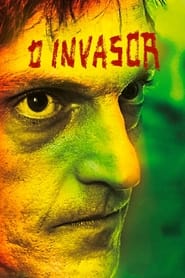 Two businessmen hire a hitman to...
Two businessmen hire a hitman to...The Trespasser 2001
Two businessmen hire a hitman to kill their third partner and are then blackmailed by the hitman as he takes over their company.
 Doctor Rafidjian turns to Dora Lobos...
Doctor Rafidjian turns to Dora Lobos...Bellini and the Sphinx 2001
Doctor Rafidjian turns to Dora Lobo's investigation agency to locate prostitute Ana Cintia. The case is in charge of Bellini and Beatriz, his new assistant. But the doctor is brutally murdered and the detectives infiltrate the night underworld of São Paulo in search of an answer, where they meet Fatima, a mysterious prostitute who gets involved with Bellini.
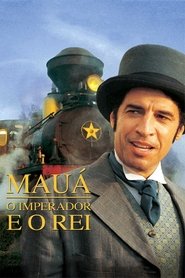 A movie about a Brazilian entrepreneur...
A movie about a Brazilian entrepreneur...Mauá - O Imperador e o Rei 1999
A movie about a Brazilian entrepreneur who rivalled American's richest man at his time, well-known Rockfeller. Irineu Evangelista de Souza in 1867 had $155.000 contos de reis, meanwhile the Brazilian Governement annual budget was 97.000 contos de reis. The movie shows his life from poverty to riches and back to poverty again, as is common in Brazil, rich people die poor.
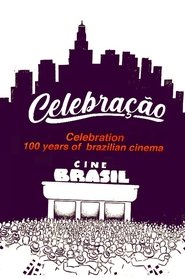 Portraits and excerpts from Brazilian films...
Portraits and excerpts from Brazilian films...Celebração - 100 Anos do Cinema Nacional 1997
"Portraits and excerpts from Brazilian films from all times. Actors, directors and images that affirm cinema."
 Record of the 1989 elections when Brazil...
Record of the 1989 elections when Brazil...Dias de Euforia 1989
Record of the 1989 elections, when Brazil was divided between Lula and Fernando Collor. It brings together material gathered from the streets of São Paulo, television broadcasts, and support from artists like Djavan, Chico Buarque, Gilberto Gil, Lobão, and Leci Brandão. Additionally, it features footage of the marches and Lula's first interview after his electoral defeat. A work that recounts fragments of the struggle for democracy in the country.
 Dede Guilherne Fontes is a Brazilian...
Dede Guilherne Fontes is a Brazilian...Dedé Mamata 1988
Dede (Guilherne Fontes) is a Brazilian teen who lives with his middle-class grandparents who are members of the local communist party. When his grandmother dies, his grandfather's health soon fades to the point where he can't speak or walk. The local party officials ask Dede to continue to family tradition and take over his grandfather's position of social authority, but when Dede is introduced to cocaine by his best friend Alpino (Marcos Palmeira), the attraction to drugs is more appealing to him than political activism.
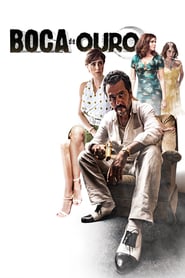 After his death infamous Rio de...
After his death infamous Rio de...
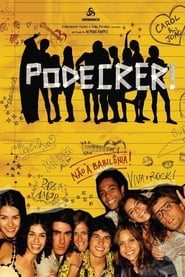 A group of students in the...
A group of students in the...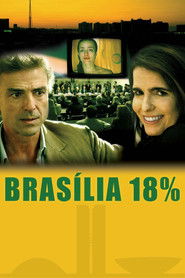 A star medical examiner is called...
A star medical examiner is called... After diving into a shallow lake...
After diving into a shallow lake...